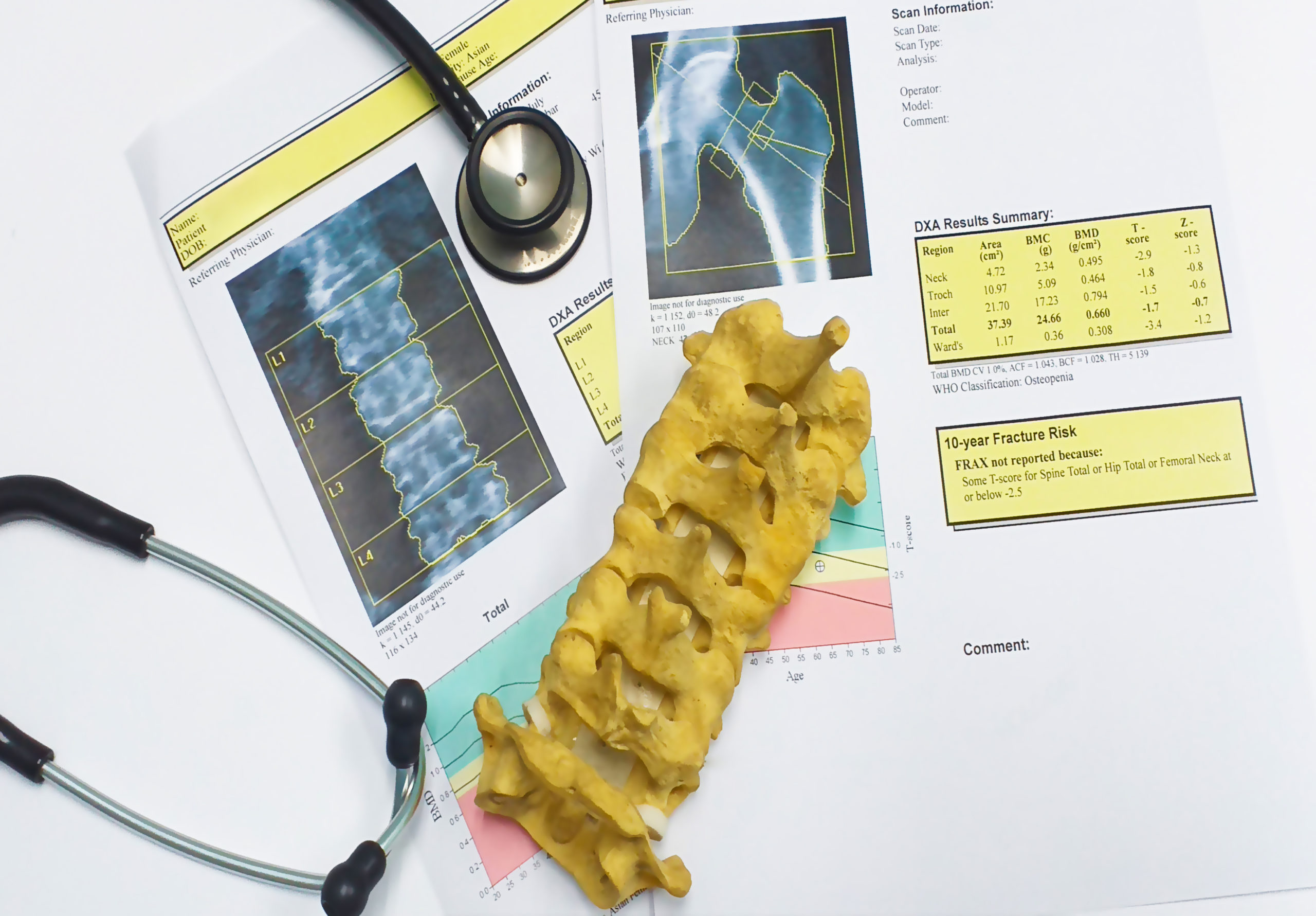What is a Bone Density Scan?
A bone density scan is a common diagnostic procedure used to measure bone mineral density (BMD). This is the thickness and density of your bones. BMD is a measure of the amount of calcium and other minerals in your bones. A higher BMD indicates that you have a greater amount of bone mass and are less likely to suffer from a fracture.
Bone density scans are most commonly used to diagnose osteoporosis, a condition that causes bones to become thin and fragile. Not only can bone density scans diagnose osteoporosis, but they can also be used to monitor the progress of treatment for osteoporosis. Osteopenia is also a condition of lower bone density, but not as low as osteoporosis.
There are several types of bone density scans, including:
- Dual-energy X-ray absorptiometry (DXA): DXA is the most common type of scan and is typically used to measure BMD in the hip and spine.
- Quantitative computed tomography (QCT): QCT is used to measure BMD in the hip, spine, and forearm.
- Peripheral quantitative computed tomography (pQCT): pQCT is used to measure BMD in the fingers, toes, and shafts of the arms and legs.

How are Bone Density Scans Performed?
There are several ways to get a bone density scan. Most bone density scans are typically performed on an outpatient basis.
Bone density scans are typically performed using a special X-ray machine called a DEXA scanner. During the scan, you will lie on a table while the scanner passes over your body. The scanner will produce images of your bones that allow your doctor to measure their density and thickness.
The scan usually takes less than 30 minutes to complete. Prior to the scan, you may be asked to avoid eating or drinking for several hours. You will also be asked to remove all jewelry and clothing that might interfere with the scan.
The technician will position you on a table and then may use a hand-held scanning device to take images of your bones. The images will be used to calculate your BMD score. You may feel a bit of pressure when the scanning device is pressed against your skin, but you should not experience any pain.
After the scan, you can resume your normal activities. There is no special care required after a bone density scan. However, if you are scheduled for a DEXA scan, you may be asked to avoid caffeine and strenuous exercise for 24 hours before the scan.
If you are worried about your risk for osteoporosis, talk to your doctor about getting a bone density scan. Bone density scans are safe and painless, and they can help you take steps to protect your bones.
Schedule Your Bone Density Scan Today
At ImageCare Radiology, we offer a variety of diagnostic imaging services to help diagnose and treat osteoporosis and osteopenia. Our DEXA scans in northern New Jersey are painless and offer a low dose of radiation, so patients can be at ease. If your doctor has requested a bone density scan, give us a call today at 973-871-3333 to schedule an appointment or complete our convenient online appointment request form.